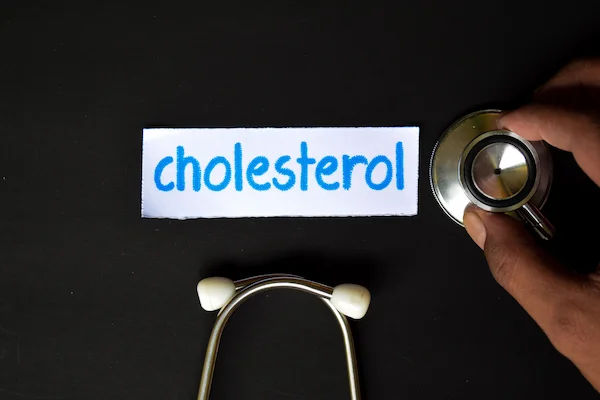Diseases Caused by Mosquitoes
Explore common diseases caused by mosquitoes, including malaria, dengue, chikungunya, and Zika virus. Learn about their symptoms, how they spread, prevention tips, and when to seek medical help.


Introduction
Mosquitoes may seem like tiny, harmless insects, but they can carry dangerous diseases that affect millions of people worldwide. These diseases can range from mild to life-threatening, making it important to understand how they spread, their symptoms, and ways to protect yourself.
In this article, we’ll discuss common mosquito-borne diseases, their symptoms, prevention tips, and when to seek medical help.
Common Diseases Spread by Mosquitoes
Mosquitoes can transmit several infections, some of which can be severe. Here are the most common ones:
1. Malaria
Malaria is caused by a parasite (Plasmodium) transmitted through the bite of an infected female Anopheles mosquito.
Symptoms:
High fever with chills
Sweating and fatigue
Headache and body aches
Nausea and vomiting
If untreated, malaria can lead to severe complications like anaemia, organ failure, and even death.
2. Dengue
Dengue is a viral infection spread by the Aedes mosquito. It is common in tropical and subtropical regions.
Symptoms:
Sudden high fever
Severe headache, especially behind the eyes
Muscle and joint pain (often called "breakbone fever")
Skin rash
Mild bleeding (nose or gums)
Severe dengue (dengue hemorrhagic fever) can cause dangerous drops in blood platelets, leading to bleeding and shock.
3. Chikungunya
Chikungunya is another viral disease spread by Aedes mosquitoes.
Symptoms:
High fever
Severe joint pain (can last for months)
Muscle pain, headache, rash
Fatigue
While rarely fatal, joint pain can be long-lasting and debilitating.
4. Zika Virus
Zika is primarily spread by Aedes mosquitoes and can also be transmitted sexually or from mother to baby during pregnancy.
Symptoms:
Mild fever
Rash
Joint pain
Red eyes (conjunctivitis)
Zika is particularly dangerous for pregnant women as it can cause birth defects like microcephaly (small head and brain) in babies.
5. Yellow Fever
Yellow fever is a serious viral infection spread by mosquitoes in tropical regions.
Symptoms:
Fever and chills
Severe headache
Back pain
Nausea and vomiting
Jaundice (yellowing of skin and eyes)
In severe cases, it can cause liver damage and bleeding, which can be fatal.
6. West Nile Virus
This virus is spread by Culex mosquitoes and can sometimes lead to neurological complications.
Symptoms:
Fever
Headache and body aches
Fatigue
Skin rash
In rare cases, severe brain infections (encephalitis or meningitis)
Health topic carousel:
Doctor's speciality: Infectious Diseases
Text: Consult a Top Infectious Disease Specialist for the best advice
How Do Mosquitoes Spread These Diseases?
Mosquitoes pick up viruses or parasites when they bite an infected person or animal. When they bite another person, they transmit the disease through their saliva.
Some mosquitoes breed in stagnant water (like Aedes, which spreads dengue and chikungunya), while others prefer rural areas (like Anopheles, which spreads malaria).
Who Is at Risk?
People living in or traveling to tropical and subtropical regions are at higher risk. Additionally:
Children and elderly individuals are more vulnerable.
Pregnant women face higher risks from Zika and malaria.
People with weak immune systems may develop severe symptoms.
How to Protect Yourself from Mosquito-Borne Diseases
Prevention is the best way to avoid these diseases. Here are some effective tips:
1. Use Mosquito Repellents
Apply EPA-approved repellents containing DEET, picaridin, or oil of lemon eucalyptus.
Wear long-sleeved shirts and pants in mosquito-prone areas.
2. Eliminate Mosquito Breeding Sites
Remove stagnant water from pots, coolers, and tires.
Cover water storage containers.
Keep surroundings clean to prevent mosquito growth.
3. Use Mosquito Nets and Screens
Sleep under insecticide-treated nets (especially in malaria-prone areas).
Install window and door screens to keep mosquitoes out.
4. Get Vaccinated (Where Available)
Vaccines are available for yellow fever and Japanese encephalitis.
A malaria vaccine (RTS,S) is being introduced in some countries.
5. Travel Precautions
Check travel advisories for disease outbreaks.
Take antimalarial medications if traveling to high-risk areas.
When to See a Doctor
Seek immediate medical attention if you experience:
High fever with chills
Severe headache, muscle pain, or joint pain
Unexplained bleeding or bruising
Persistent vomiting or dehydration
Confusion or seizures
Early diagnosis and treatment can prevent complications.
Final Thoughts
Mosquito-borne diseases can be dangerous, but simple preventive measures can significantly reduce your risk. Stay aware, protect yourself, and seek medical help if symptoms appear.
Health topic carousel:
Doctor's speciality: Infectious Diseases
Text: Consult a Top Infectious Disease Specialist for the best advice




